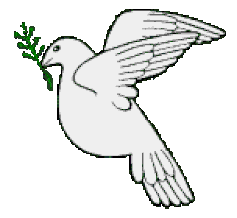Mark 14:1-11
Lesson 93
Lesson 93
Read both the "King James Bible" and the "New Living Translation."
In this lesson:
Jesus is anointed at Bethany.
Judas makes a deal.
Jesus is anointed at Bethany.
Judas makes a deal.
Study Tip:
When studying, review the Margin Notes in blue.
When studying, review the Margin Notes in blue.
What is -
Passover -
Passover is the annual Jewish holiday (highlighted by the Passover feast) commemorating the night the angel of death passed harmlessly over the enslaved Israelites in Egypt while killing the firstborn of all Egyptians (Exodus 12:13). This fearsome miracle convinced the Egyptians to let the Israelites go free after four hundred years of slavery. To begin the holiday, a sacrificial lamb was killed, without breaking any of its bones (Exodus 12:46; Numbers 9:12), and roasted. The Passover feast was then prepared with bitter herbs (representing the bitterness of slavery) and sweet
spices (representing the sweetness of freedom) and was followed immediately by the Feast of the Unleavened Bread (Exodus 23:15; Leviticus 23:5-8). The two eventually became as one holiday (Mark 14:1) beginning on the fourteenth day of the seventh month (Abib) and lasting one week as prescribed in Deuteronomy 16:1-3. All Jewish men were required to "appear before the Lord" (Exodus 23:17) on Passover, so thousands of Jews came to Jerusalem each year to celebrate their liberation and to offer up a religious sacrifice. Passover is sometimes called simply the Feast of Unleavened Bread (Exodus 23:15; Mark 14:1; Luke 22:1). Another interesting point is that Jesus was
sacrificed on the cross the same day the sacrificial Passover lambs were killed in the Temple. Just like the sacrificial lambs, not a bone in Jesus' body was broken (John 19:36). To learn more about the Passover and its importance read Exodus 12:1-30; 12:43-50; 13:1-22; and Deuteronomy 16:1-8.
Feast of unleavened bread -
Immediately followed Passover and lasted seven days. It memorialized the Jews quick "exodus" from Egypt. Needing to flee quickly, the Israelites prepared for their escape by baking bread without yeast so it wouldn't rise. (Exodus 12:33-34). Each year Jews came to Jerusalem to celebrate both Passover and the Feast of Unleavened Bread (Exodus 23:15).
Passover -
Passover is the annual Jewish holiday (highlighted by the Passover feast) commemorating the night the angel of death passed harmlessly over the enslaved Israelites in Egypt while killing the firstborn of all Egyptians (Exodus 12:13). This fearsome miracle convinced the Egyptians to let the Israelites go free after four hundred years of slavery. To begin the holiday, a sacrificial lamb was killed, without breaking any of its bones (Exodus 12:46; Numbers 9:12), and roasted. The Passover feast was then prepared with bitter herbs (representing the bitterness of slavery) and sweet
spices (representing the sweetness of freedom) and was followed immediately by the Feast of the Unleavened Bread (Exodus 23:15; Leviticus 23:5-8). The two eventually became as one holiday (Mark 14:1) beginning on the fourteenth day of the seventh month (Abib) and lasting one week as prescribed in Deuteronomy 16:1-3. All Jewish men were required to "appear before the Lord" (Exodus 23:17) on Passover, so thousands of Jews came to Jerusalem each year to celebrate their liberation and to offer up a religious sacrifice. Passover is sometimes called simply the Feast of Unleavened Bread (Exodus 23:15; Mark 14:1; Luke 22:1). Another interesting point is that Jesus was
sacrificed on the cross the same day the sacrificial Passover lambs were killed in the Temple. Just like the sacrificial lambs, not a bone in Jesus' body was broken (John 19:36). To learn more about the Passover and its importance read Exodus 12:1-30; 12:43-50; 13:1-22; and Deuteronomy 16:1-8.
Feast of unleavened bread -
Immediately followed Passover and lasted seven days. It memorialized the Jews quick "exodus" from Egypt. Needing to flee quickly, the Israelites prepared for their escape by baking bread without yeast so it wouldn't rise. (Exodus 12:33-34). Each year Jews came to Jerusalem to celebrate both Passover and the Feast of Unleavened Bread (Exodus 23:15).




